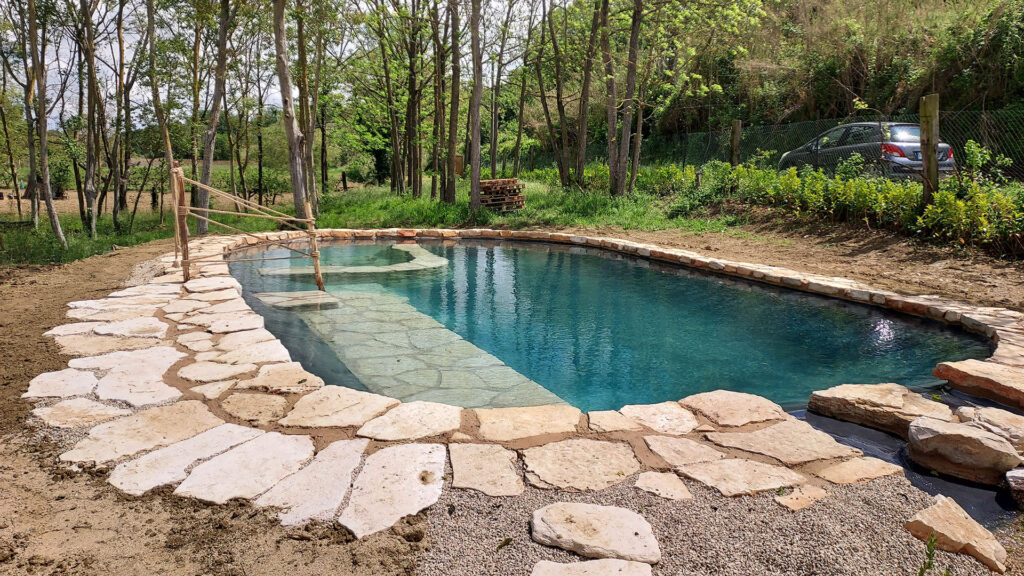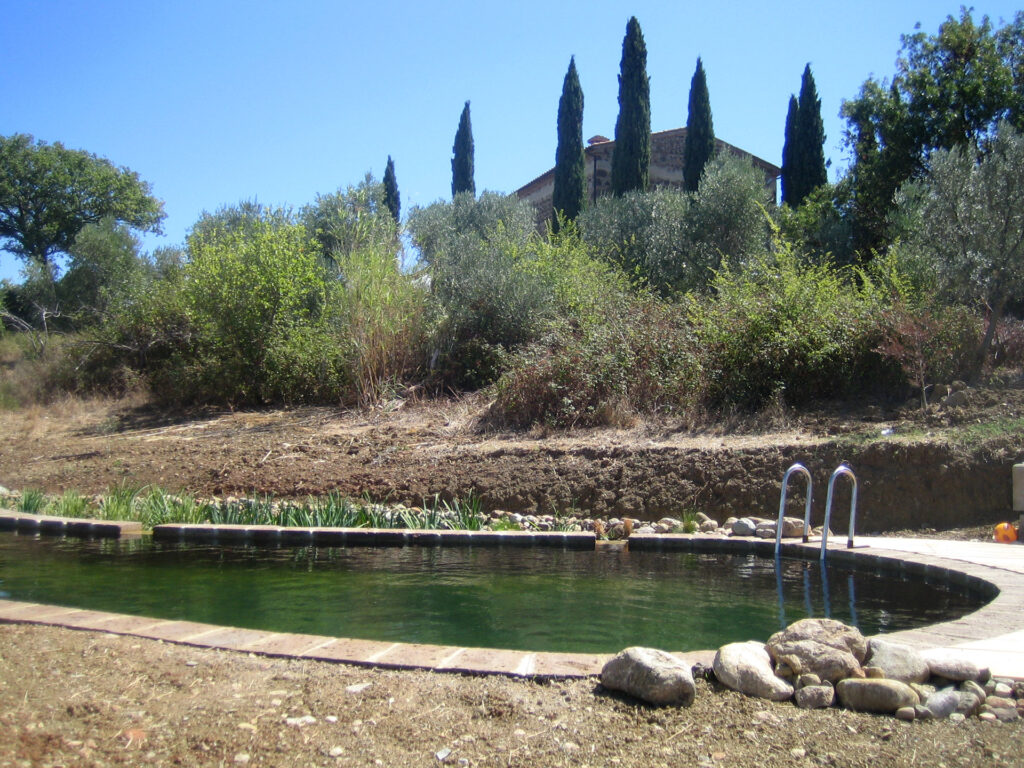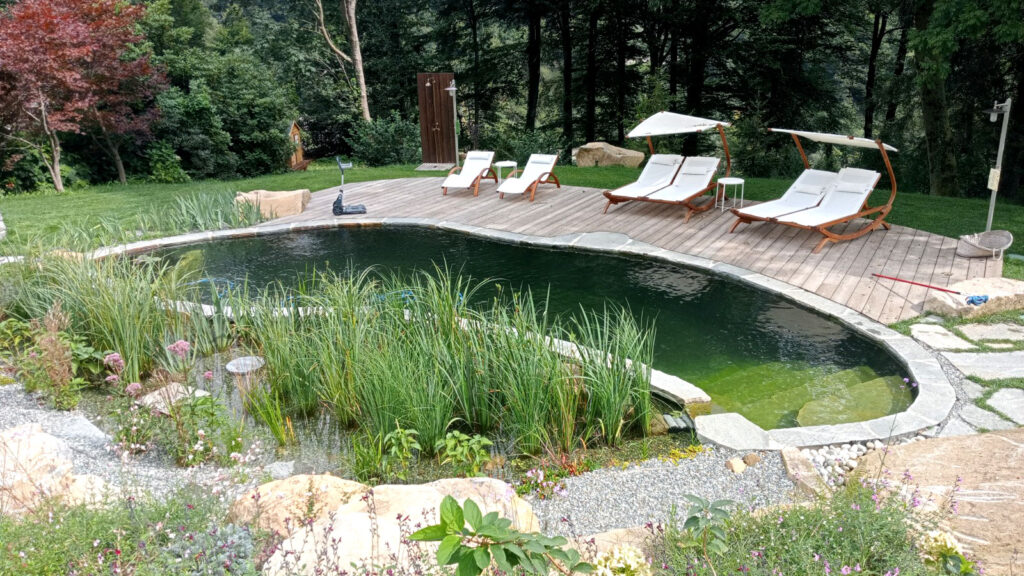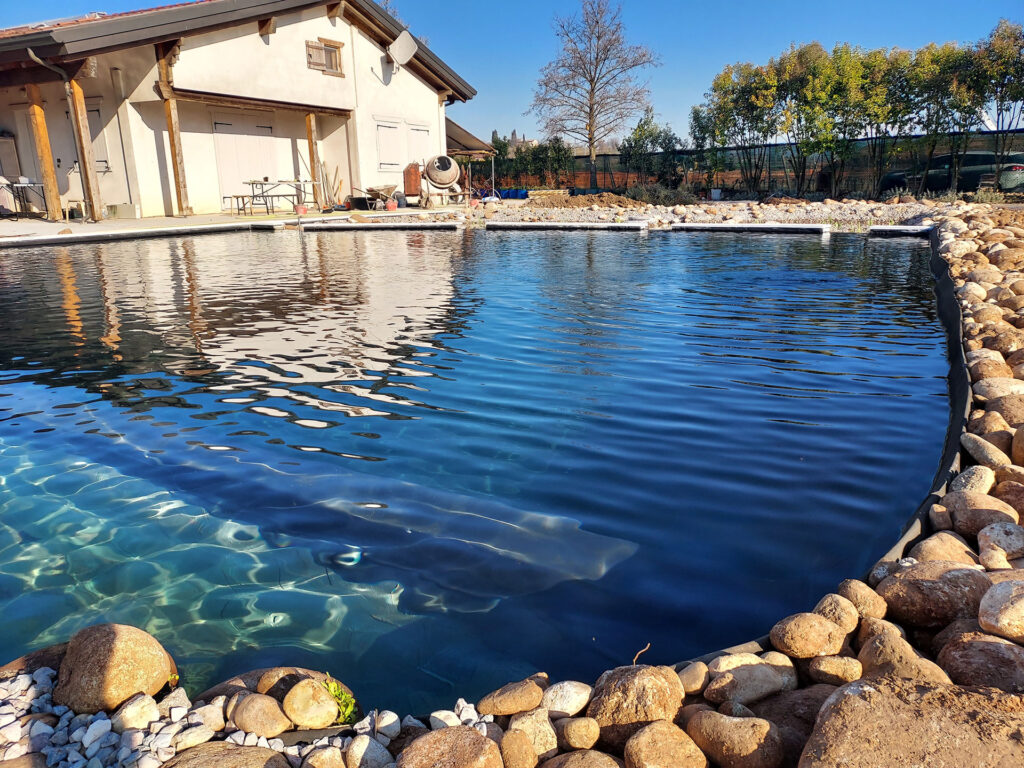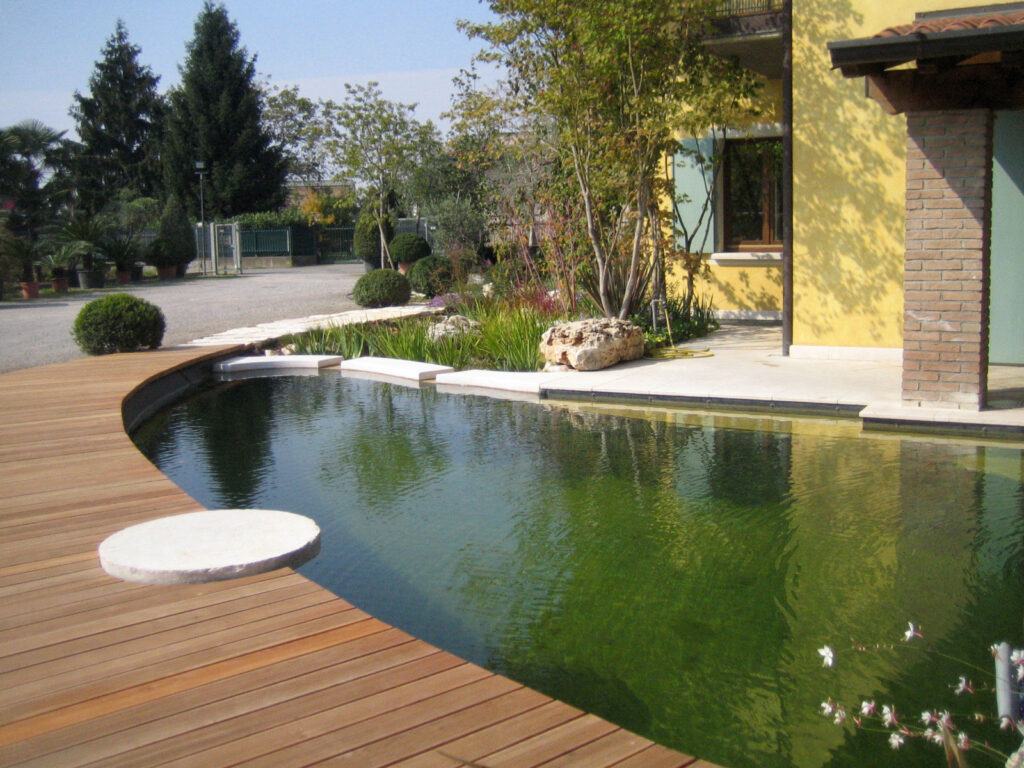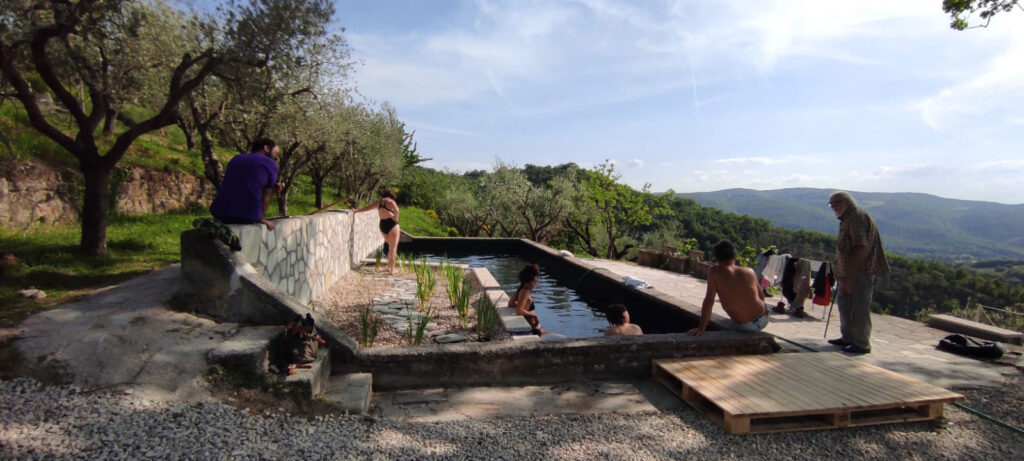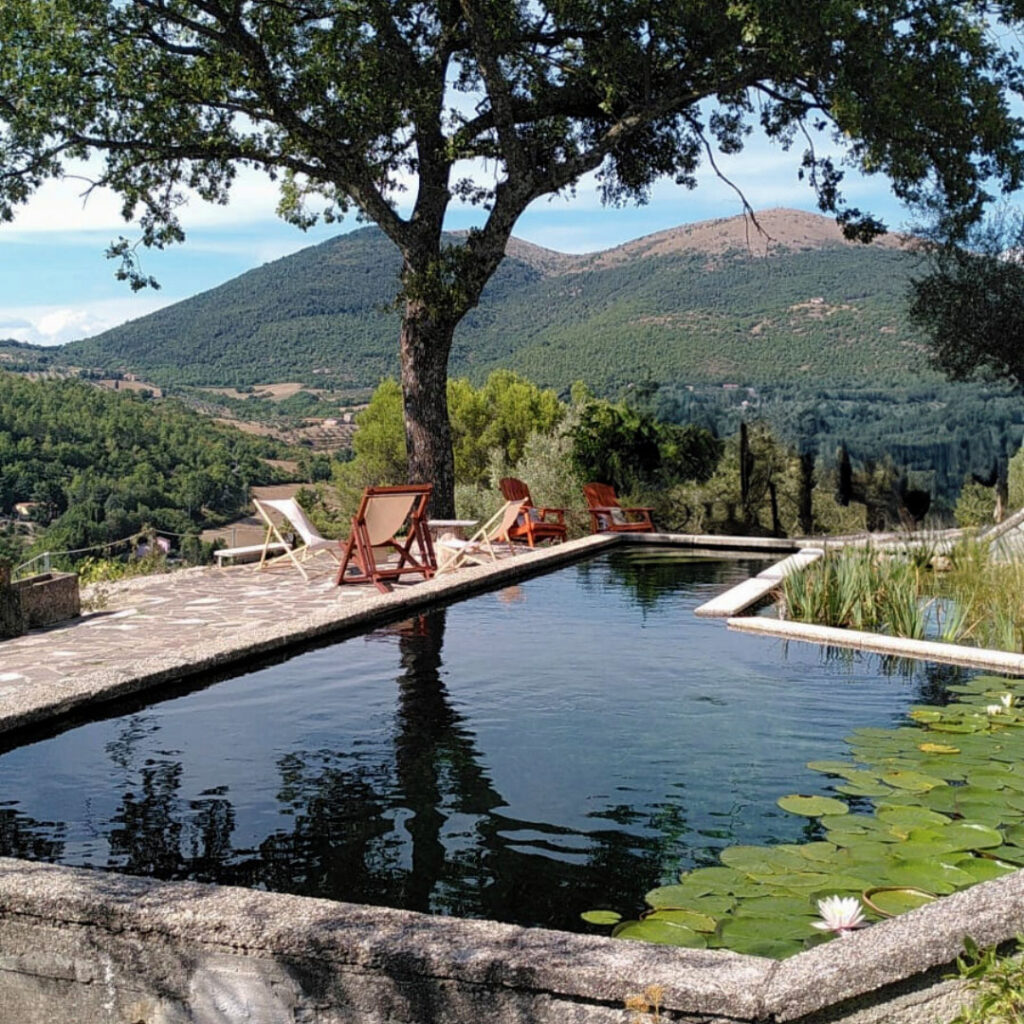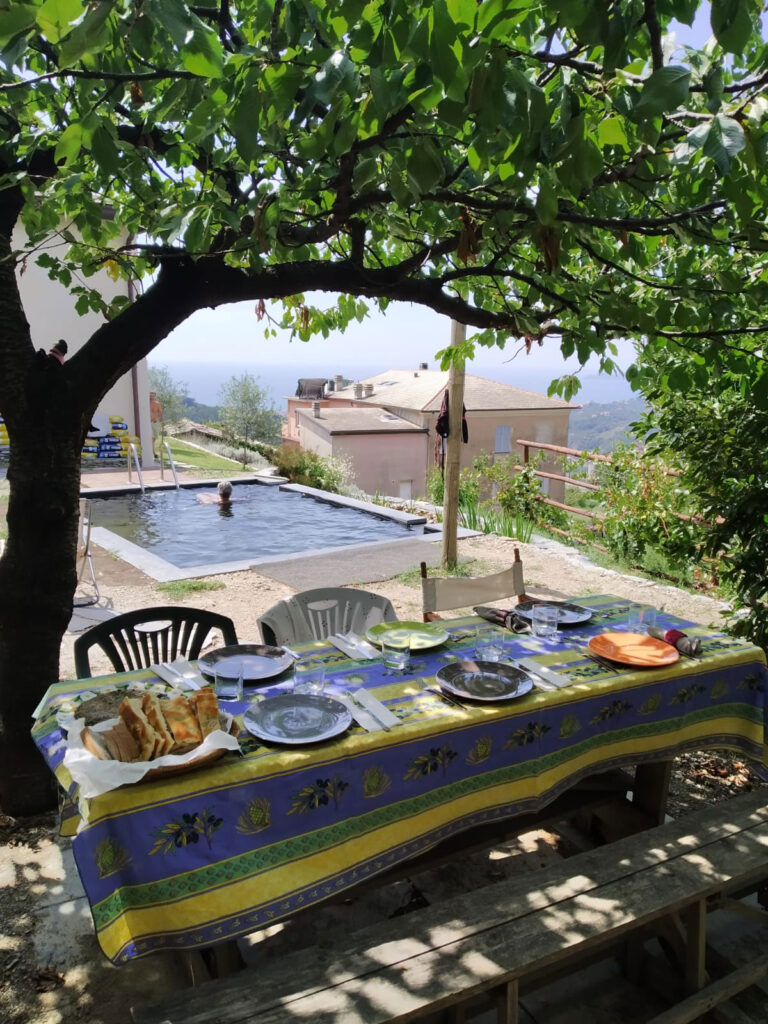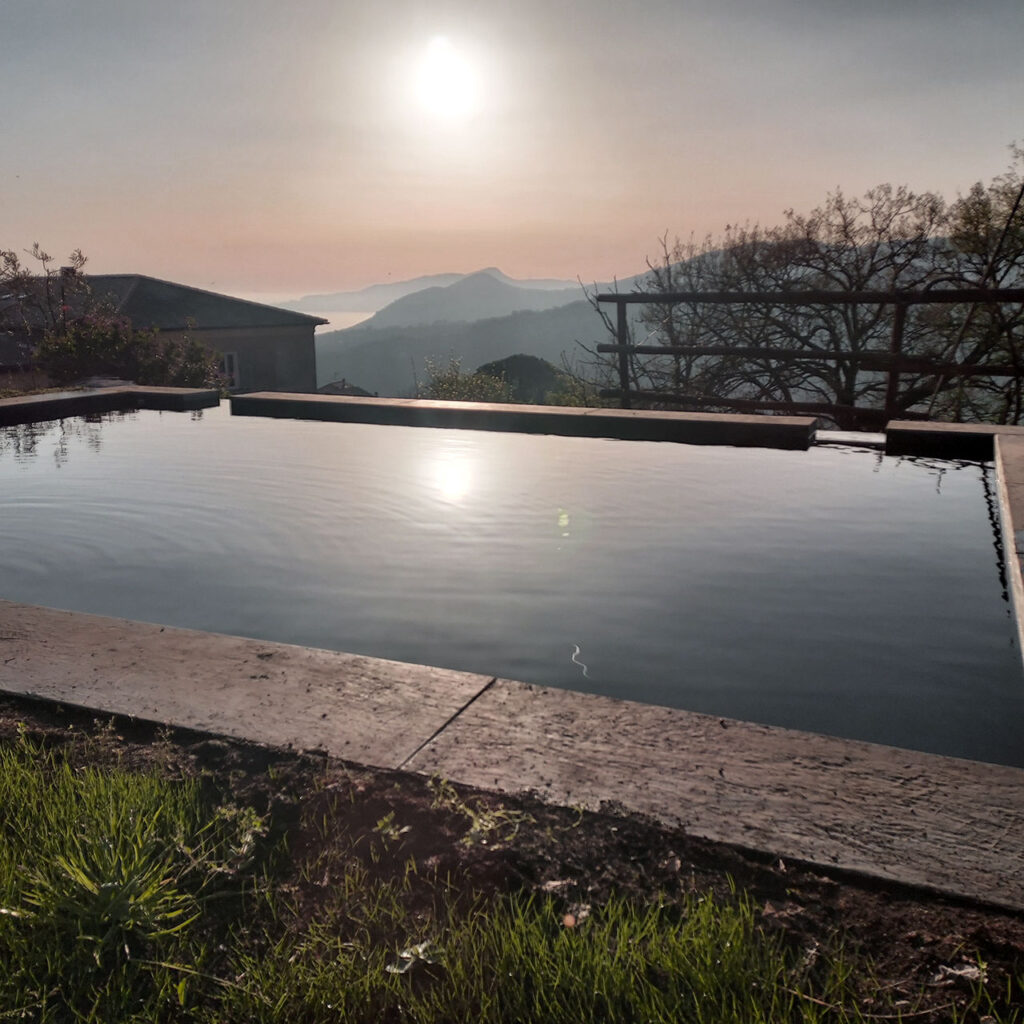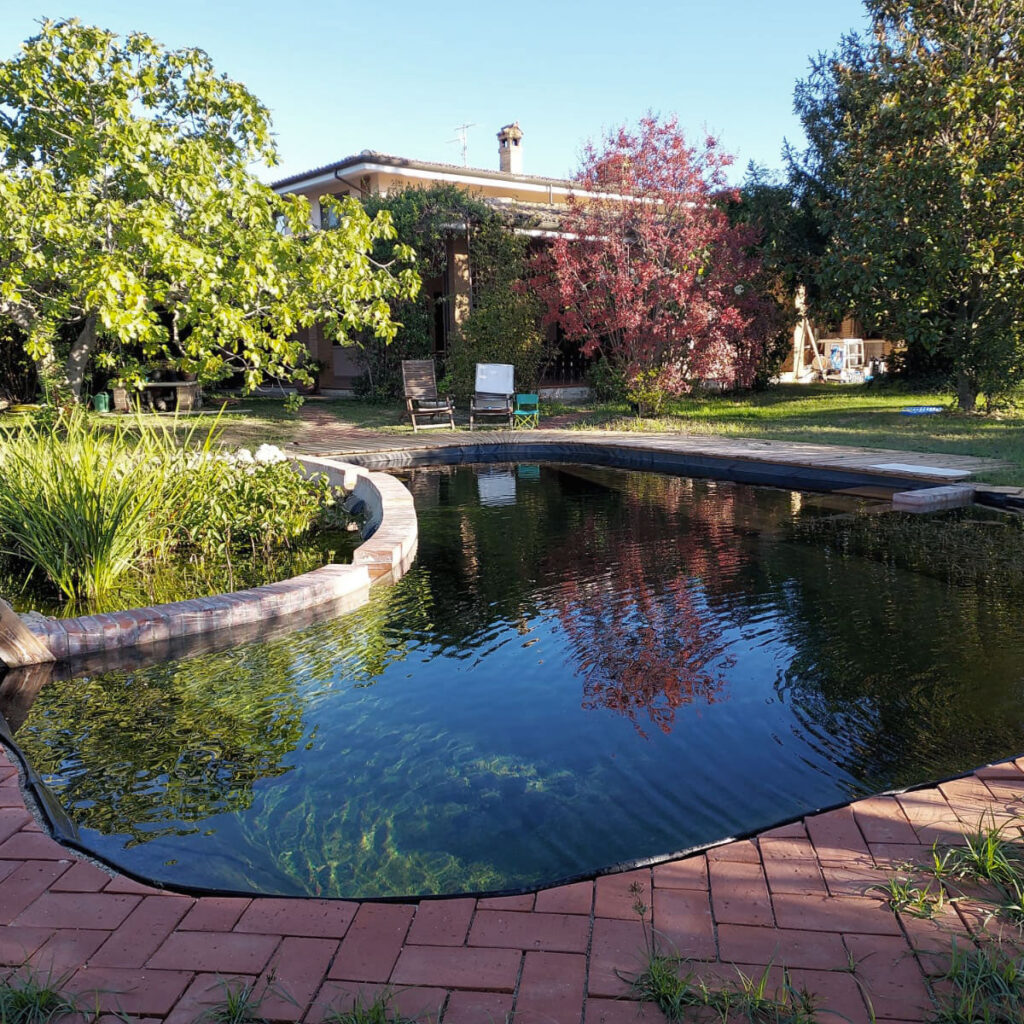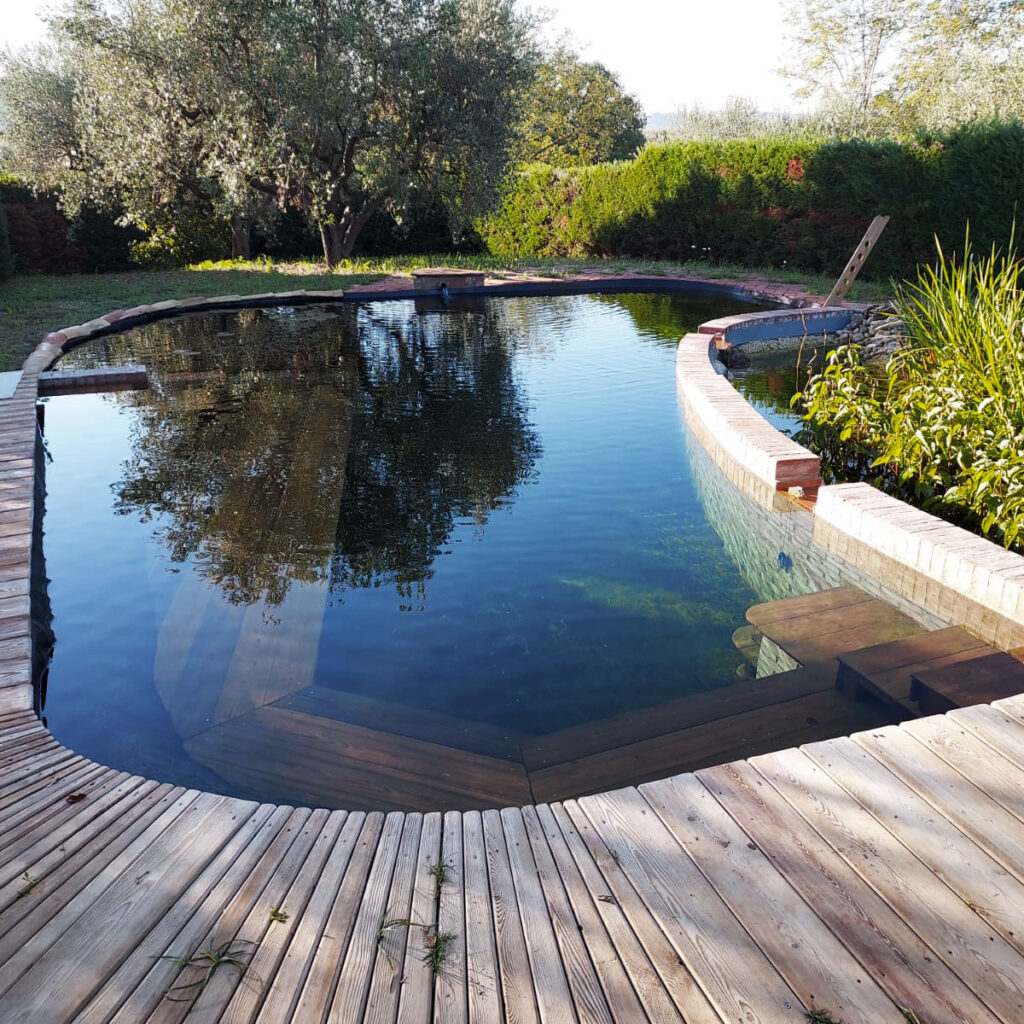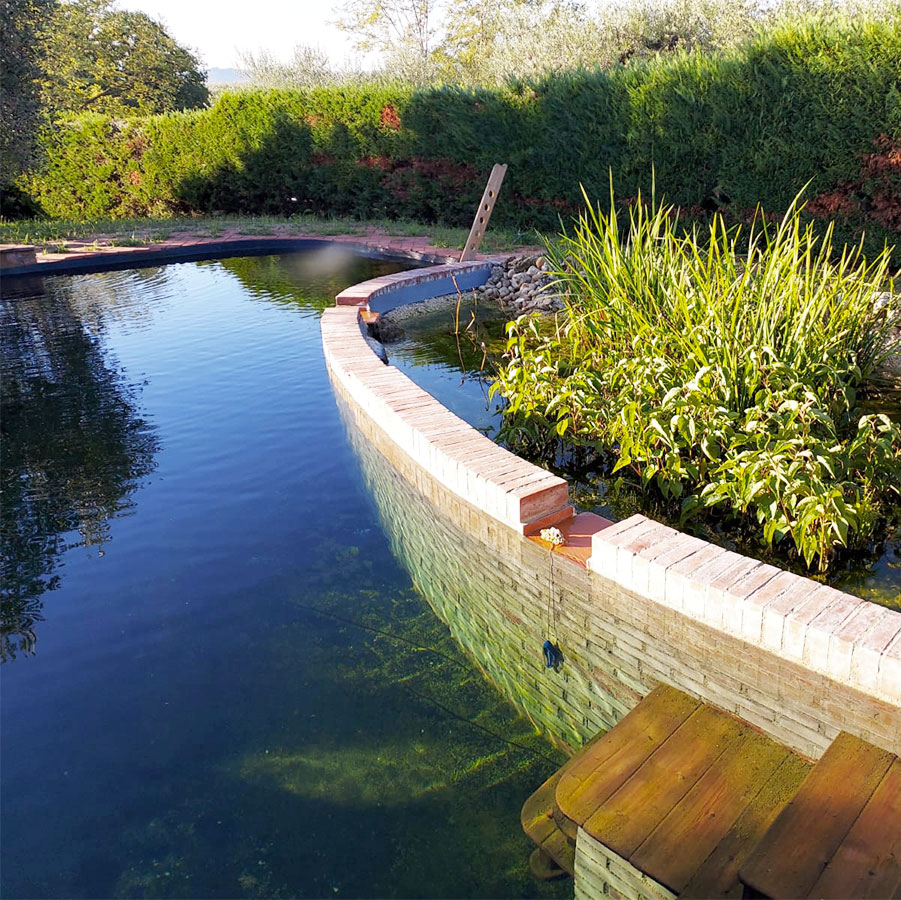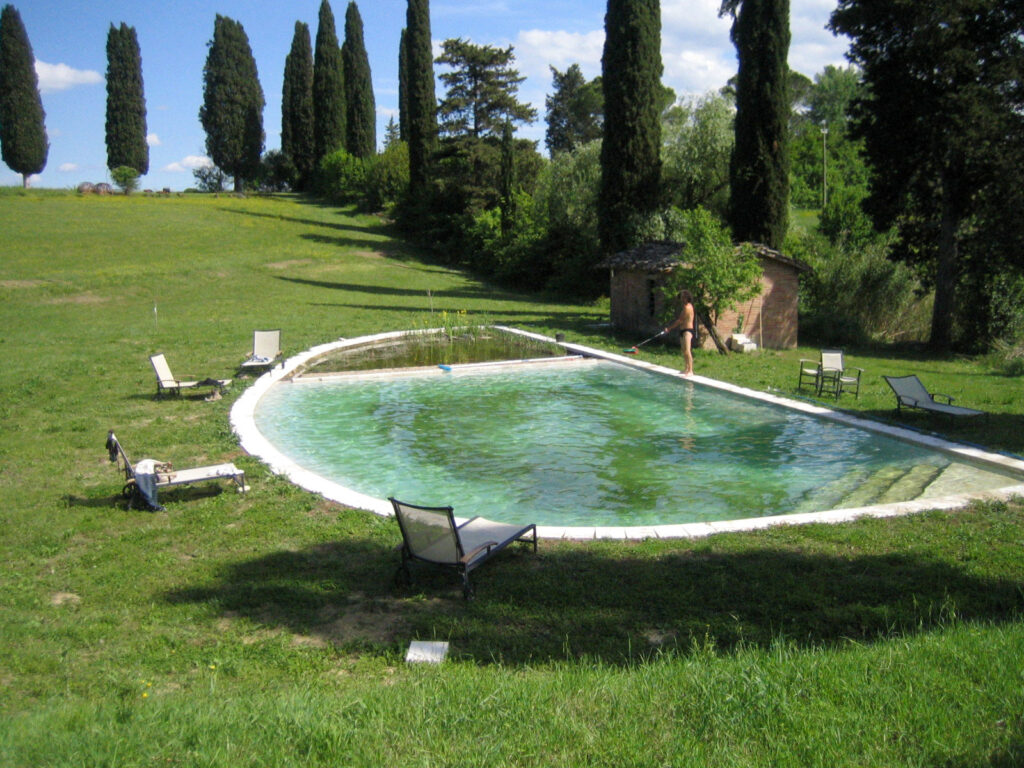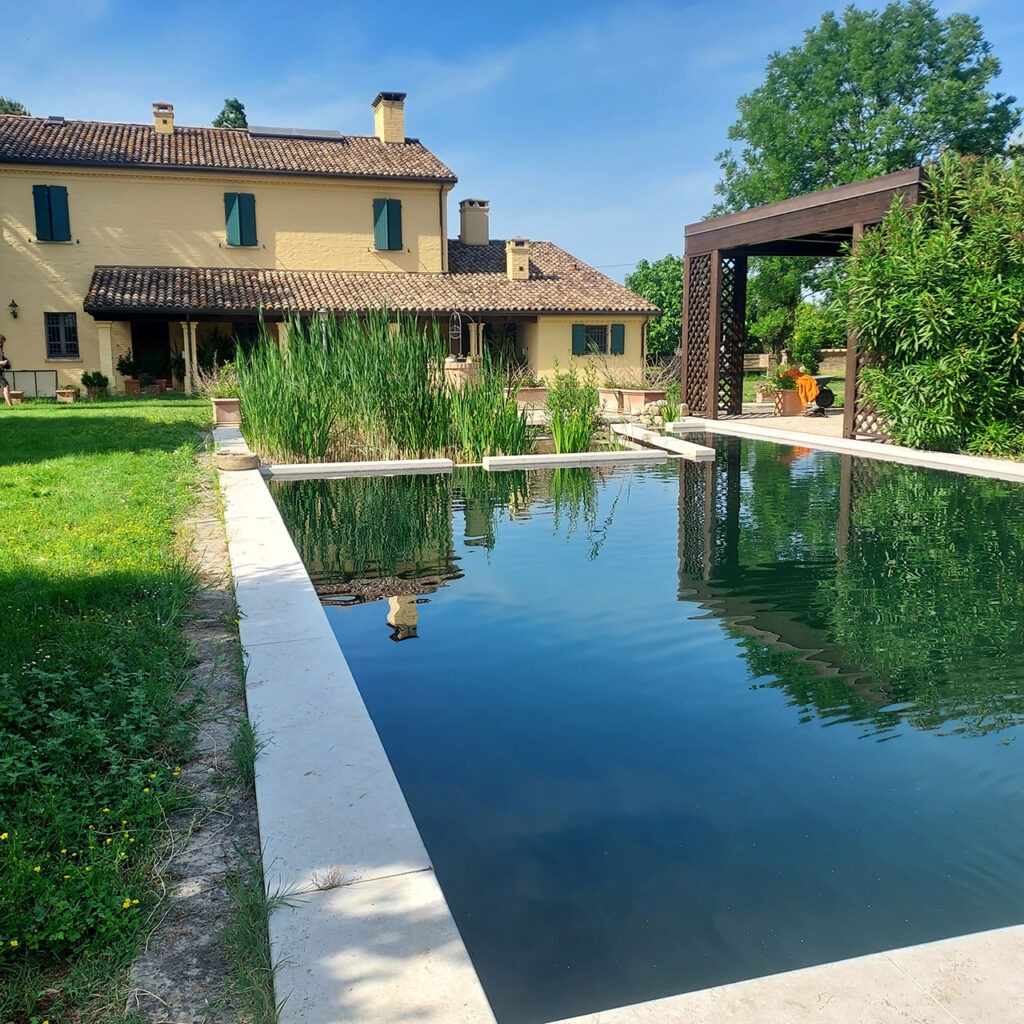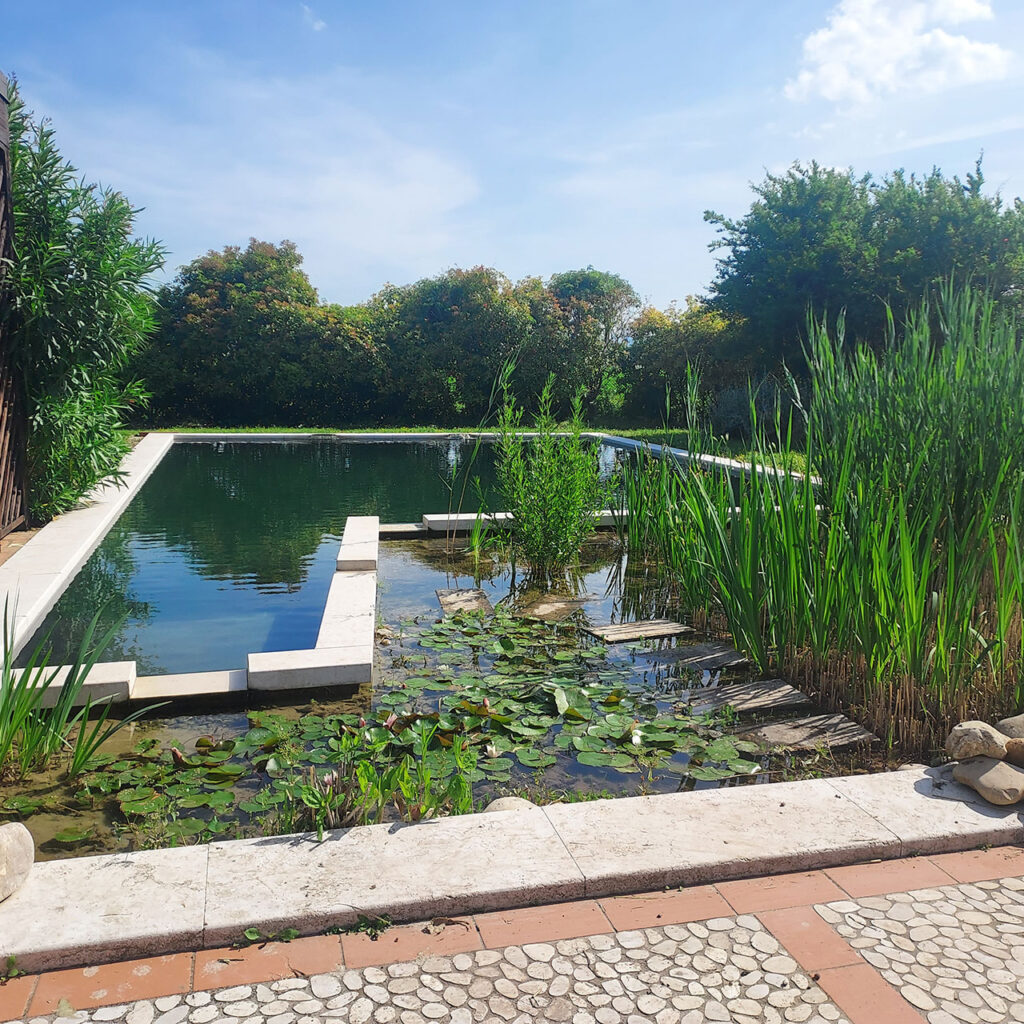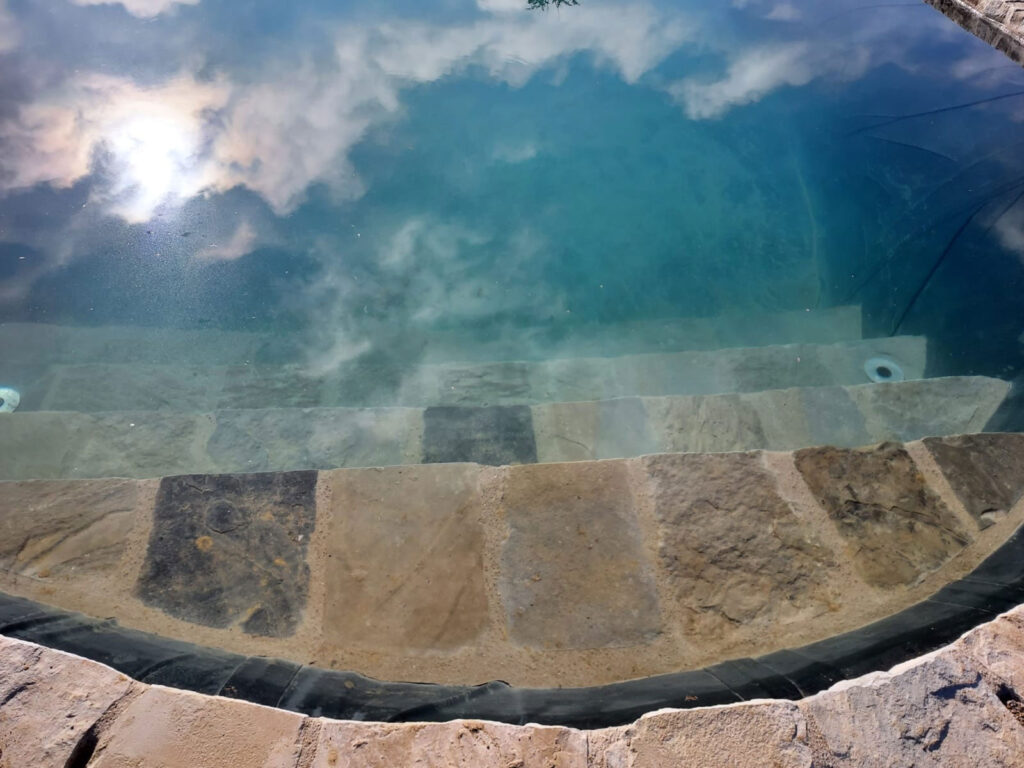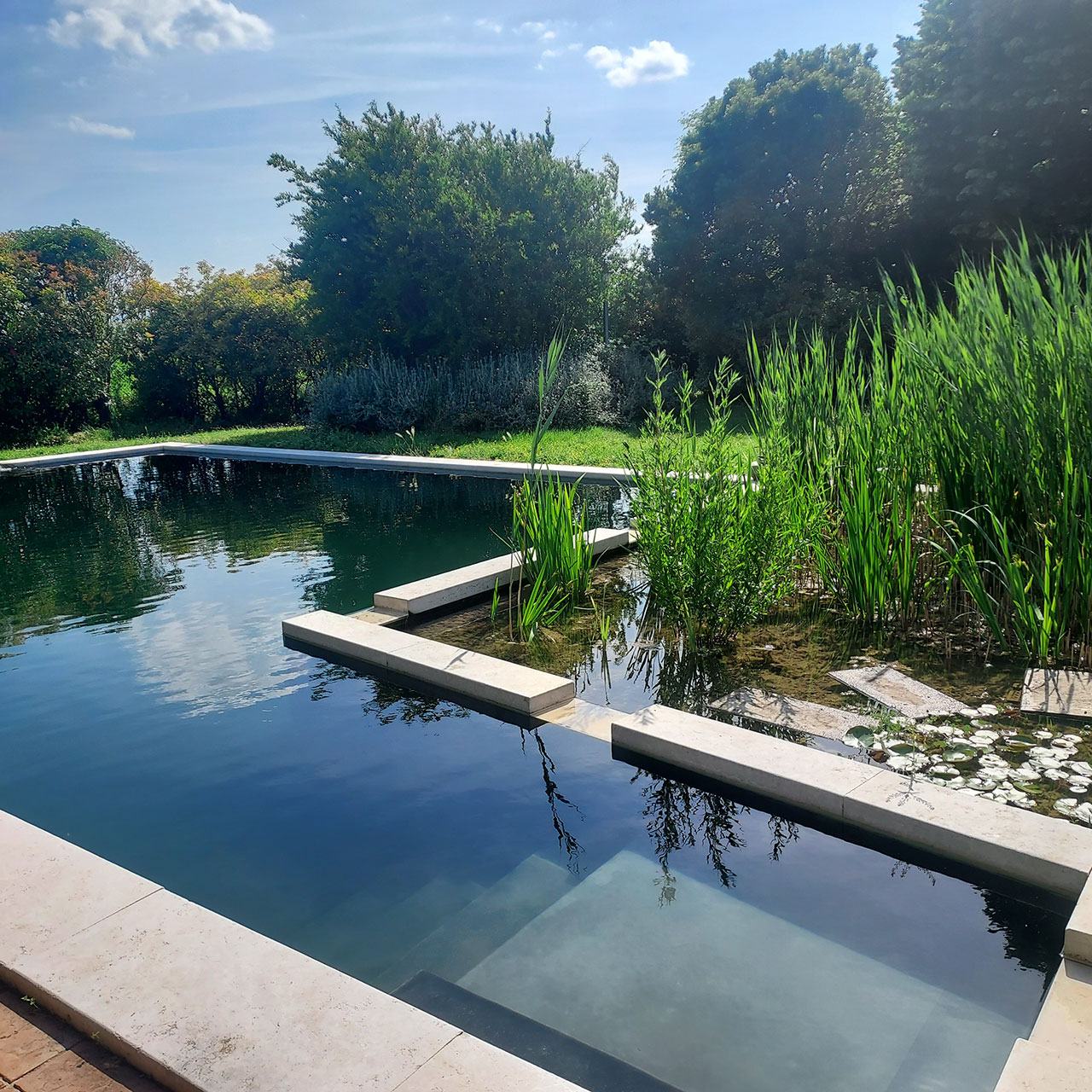
Converting pools in natural pools
From poll to natural poll
Converting a traditional pool into a biopool or biolake is (almost) always possible. After an on-site inspection, we can discuss the options and related costs together.
There are several methods for converting your pool to a biopool, and we’ll take this opportunity to assess the waterproofing and structural integrity of the existing system. Converting to a biopool is undoubtedly the most environmentally friendly and cost-effective option.
Email or call us for more information or a no-obligation quote. Find our contact details here.
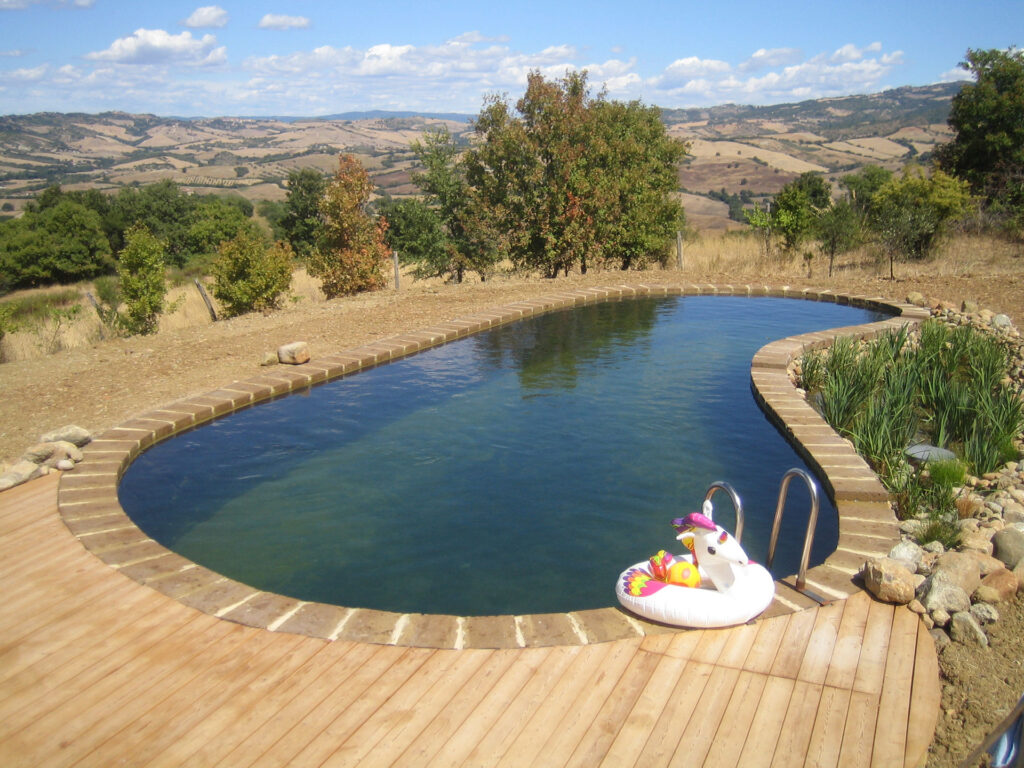
How to convert a pool into a bio-pool or bio-lake?
Converting a pool to a biological one means eliminating the existing purification and disinfection system and replacing it with biological filtration.
There are various solutions, depending on feasibility and the desired result. This involves installing a biofilter, with or without aquatic plants, inside or outside the structure. The biofilter, or biological filter, can be thought of as an “aquatic flowerbed”: a submerged phytoremediation area, planted with marsh and aquatic plants. This area occupies approximately 20-25% of the surface area, but depends on various factors such as water quality and the number of users.
Inserting it inside the structure, via a dividing wall, reduces the swimming area but may be necessary if the garden space is insufficient for an enlargement.
Advantages and Disadvantages of a Natural Pool or Biolake
Here are some advantages and disadvantages of converting a traditional pool to a natural pool or biolake
Lower operating costs: a natural pool never needs to be emptied throughout the year, does not require constant product additions, and has a very simple, energy-efficient system, saving you money on your bills.
No daily maintenance required: the biological purification system runs automatically and allows for easier management than a traditional pool. By installing remote sensors, a natural pool can even be managed in a second home.
Unparalleled water quality: it will be like bathing in a mountain lake, without skin and mucous membrane irritants like chlorine. You can even open your eyes underwater!
The presence of aquatic plants makes the garden more pleasant to live in and rich in biodiversity.
Being an ecosystem, it still requires attention and care, although very different from a traditional pool: it is certainly a solution for nature and ecology lovers. Don’t be alarmed if you find a frog or aquatic insect in your filtration area!
Be inspired by some of our projects
